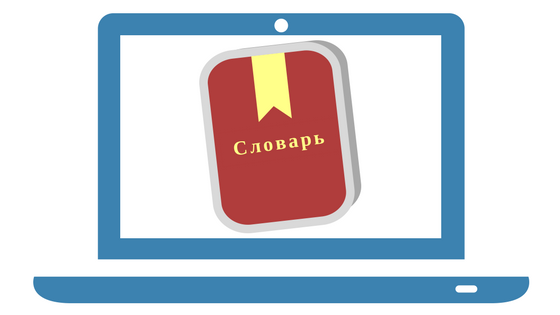It is hardly possible to learn a foreign language without a dictionary. But it may be not an easy task to find a suitable one, especially when you don’t know that foreign language well enough yet. Are you also looking for a good dictionary, but can’t decide which to prefer? Try these! I use them myself to prepare for my classes as a Russian teacher and to learn foreign languages too. You will also choose a good dictionary here, I think.

It is not exactly a dictionary, but rather the base of pronunciations. You won’t find any translations, definitions or examples there. But it allows you to listen how native speakers pronounce this or that word, and not only in the infinitive/nominative form!
Explanatory dictionaries (Russian – Russian)
‘Грамота‘ is the reference portal for Russians. But foreigners easily can learn to use its dictionary. Type a word in a yellow field marked as “Проверка слова (word check)” and press “Проверить (to check)” button. You will see its explanation in Большой толковый словарь русского языка (the Large explanatory dictionary of the Russian language). It usually provides explanations with some usage examples, word stress, and main forms.
Corpus is the collection of different texts, including those from the Internet, in modern Russian. Therefore, it is full of real-life usage examples of almost all the words and phrases. You can also specify grammatical and semantic features for the words, using the lexis-grammatical search. And if you are not comfortable with Russian interface, there is an English one. Although, Russian version has more advanced search options.
You will discover a great collection of dictionaries and encyclopedias there. And it is possible to search a word both in one specific dictionary and in all of them at the same time. So you can find a lot of stuff there: explanations, synonyms, usage examples, idioms with a word, etc. The only negative thing is the ads on the website.
Translation dictionaries (Russian ↔ other language)
This one is especially good for beginners, as it contains lots of useful stuff. There are transcriptions, collocations, audios (to check pronunciation), and the table-sign to open quite a handy table of the word forms.
Although, you may not find some of the words (not very frequently used ones) there.
Important! Choosing a language pair, select your mother tongue first, and then find its pair with Russian. Otherwise, it will think you are the Russian learning a foreign language (so it will show you the tables of your mother tongue instead of Russian).
Languages: English, Bulgarian, Hungarian, Vietnamese, Greek, Danish, Spanish, Italian, Chinese, Korean, Latvian, Lithuanian, German, Dutch, Norwegian, Polish, Portuguese, Romanian, Russian, Serbian, Slovak, Slovenian, Turkish, Ukrainian, Finnish, French, Croatian, Czech, Swedish, Estonian, Japanese.
Learners from Poland will, probably, be more comfortable with the Polish version of the portal.
‘Multitran’ is another multilingual online dictionary. However, the translation is possible only from Russian or to Russian.
I would recommend this dictionary for intermediate and more advanced learners. The thing is, that some mistakes are possible there, as users actively add words and translations themselves.
Languages: English, German, French, Spanish, Italian, Dutch, Latvian, Estonian, Afrikaans, Esperanto, Kalmyk.
Initially, it was a dictionary for Russians, who learn Chinese, but you can use it vice versa as well. What I like about this dictionary, is that it contains usage examples.
‘Linguee’ is one more interesting online dictionary. You can find good word usage examples in different contexts there. Unfortunately, Russian is only available in pair with English at the moment.
And what online Russian dictionaries do you use? What do you like about them?


Leave a Reply